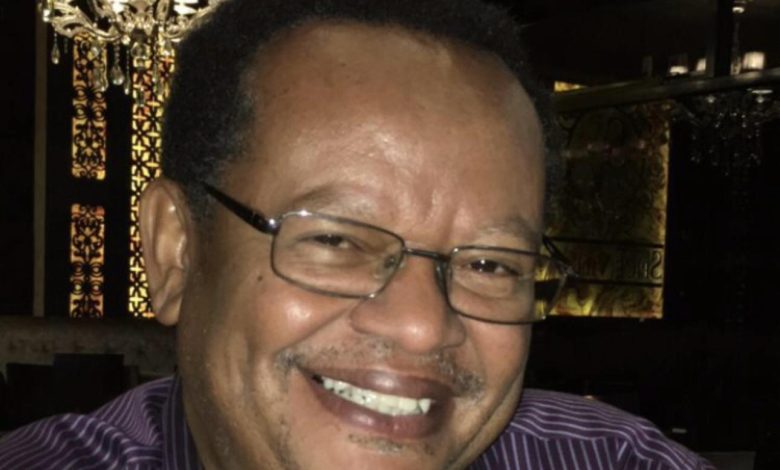RSF Militia, Terrorism… and Kebab

By: Babekir Ismail
Prelude:
Definition of terrorist acts:
These are criminal acts intended to spread a state of terror among the general public, a group of persons, or specific persons for political purposes.” Resolution No. 60/43 of the United Nations General Assembly in January 2006.
The International Committee of the Red Cross believes that carrying out terrorist acts against civilians during wars, such as assaulting civilians by killing, capturing, or intimidating, and assaulting civilian facilities such as hospitals, electricity and water purification plants, schools, and civilian homes, falls under the penalty of war crimes according to international humanitarian law .
We also find that International Humanitarian Law prohibits intentional or direct attacks, and indiscriminate attacks against civilians or civilian facilities.
International Humanitarian Law also prohibits the use of human shields or the kidnapping of hostages, and International Law specifically prohibits parties participating in an armed conflict from committing terrorist acts against civilians who are under the control of the opponent or spreading terror among the civilian population during hostilities .
Definition of terrorism in Sudanese law:
The Terrorism Law of 2001 stipulates the following:
“Terrorism” means every act of violence or threat thereof, whatever its motives or purposes, constituting the implementation of a criminal project Individually or collectively, and aims to spread terror among people or intimidate them by harming them or endangering their life, freedom, or security or harm to the environment or public or private funds, or one of the facilities or public or private property, or occupying or seizing it, or exposing a national resource or national strategy to danger in addition to the Anti-Money Laundering and Terrorist Financing Law of 2014(6).
From the definitions above, we find that the Rapid Support Militia (RSF) (Janjaweed)) has fulfilled all the conditions for being described as a terrorist organization according to the international, humanitarian and Sudanese definition. We will detail in the conclusion of the article the impact of this classification on international and regional relations.
But before that, we will detail and analyze the decisions of the Sudanese committee formed by the Council of Ministers in this regard and the decisions it issued in which it classified the RSF as a terrorist organization.
What are the United Nations laws (1267 and 1393):
Law 1267 (UNSCR 1267): This law is both preventive and punitive and obliges Member States to deprive terrorists of financial resources whenever terrorists, terrorist organizations and acts are proven to be linked to these financial resources.
Law 1393 (UNSCR 1393) urges the Australian government (and other member states) to discourage terrorist activities through sanctions targeting terrorists and terrorist organizations and to include anti-terrorism laws in national laws (3).
Announcing the designation of the Janjaweed militia as a terrorist organization:
On Thursday 01/02/2024, Sudanese television and the official website of the Sudan News Agency reported news about a technical committee formed in 2014 and entrusted with implementing Security Council Resolutions No. 1267 and 1393 related to drying up sources of terrorist financing and banning funds and companies proven to be linked to terrorism.
This committee classified the RSF Militia as a terrorist organization based on a request submitted by the Public Prosecution on 06/11/2023. The committee took three months to study the request and identify the evidence and reasons, which amounted to forty documented criminal evidence, on which the technical committee based this classification. Among these facts and documented evidence is RSF militia’s attacks on citizens’ homes and vital facilities (water, electricity, and communications), in addition to attacks on civilians, indiscriminate bombing of residential neighborhoods, rape, sexual slavery, recruitment of foreign and local children and mercenaries, kidnapping of civilians and their families, and other terrorist acts.
Based on this classification, the Sudanese Technical Committee responsible for combating terrorism banned the assets of 199 militia leaders and members, in addition to banning 37 companies and business names belonging to the dissolved RSF.
These decisions were preceded by important facts related to this classification:
1/ On September 7, 2023, the US Treasury Department issued sanctions on Lieutenant General Abdul Rahim Dagalo – the second commander of the RSF Militia – and Major General Abdul Rahman Jumaa Park, commander of the West Darfur Sector, and the latter was accused of liquidating Mr. Khamis Abkar, the governor of West Darfur State, and mutilating his body..
The US Treasury decision froze all the financial assets of Abdul Rahim Dagalo and Abdul Rahman Jumaa Park in the United States, and the decision prohibited any financial dealings with them. It is worth noting that the sanctions did not include the Militia leader, Lieutenant General Hemedti, for unknown reasons.
2/ On the same day, 07/09/2023, Lieutenant General Abdul Fattah Al-Burhan issued a decision dissolving the RSFand canceling its law..
3/ However, according to what has come to my knowledge, the President of the Transitional Sovereign Council, Lieutenant General Abdul Fattah Al-Burhan, did not issue a decree suspending or canceling the texts referring to RSF and its constitutional duties in the Transitional Constitutional Document that is still in effect.. And he also did not relieve Lieutenant General Hemedti from… Membership of the Transitional Sovereign Council and did not expel and discharge Hemedti from military service and strip him of the rank of Lieutenant General after the dissolution of the RSF. All of these are considered complementary and necessary steps after the decision to classify the RSF Militia (the dissolved RSF) as a terrorist organization.
4/ The Technical Committee was formed by the Sudanese Council of Ministers in the year 2014 with Resolutions 358, 359 and 360 based on Article 34 of the Money Laundering and Anti-Terrorism Law
5/ The decisions of this technical committee came much later than the decision to dissolve the RSF issued by Lieutenant General Al-Burhan, Commander of the Army and President the Transitional Sovereign Council, in September of last year, and more than five months had passed since the issuance of US sanctions, and after the RSF Militia had expanded to all states; Darfur, Gezira State, and the borders of Gedaref, Sennar, and White Nile states. The Militia is active daily in carrying out military skirmishes and frequent violent attacks on army garrisons in South and North Kordofan and elsewhere.
6/ Based on the reasons mentioned in point (5) above, we can conclude that the current de facto government in Sudan is not enthusiastic about describing the RSF Militia as terrorist and may prefer to wave the description of terrorism as a political and tactical card to put pressure on the militia and its arrogant leader. My evidence for this is that it came from the joint meeting of the two Sovereign Councils. On February 8, 2024, the ministers issued a statement adopting the Jeddah Platform a single one for negotiating with the Militia, which was classified as a terrorist organization on February 1, 2024.
I do not know if it is acceptable to sit down to negotiate with terrorist organizations and strive with them to reach political understandings and agreements that would be satisfactory to the terrorist organization..?!
To what extent is it mandatory to classify the Militia as a terrorist for the countries of the region and the international community:
In this section, I will address the general features of dealing with terrorism classifications issued by individual countries, such as Sudan, according to United Nations laws. My reference in this regard is a working document issued by the Technical Assistance Service of the United Nations Office on Crime and Drugs, issued on April 6, 2006, entitled: Preventing Terrorist Acts: A Criminal Justice Strategy That Applies Rule of Law Standards.
The goal of the United Nations protocols that it issued regarding terrorism, defining it, and explaining ways to combat and criminalize it is that member states will include the texts of these definitions and crimes in their national laws, thus facilitating dealings between countries when a country classifies persons or organizations as terrorist, as the criminal duality in the laws makes the process of exchanging and extraditing terrorists between countries easy, and in this protocol we find multiple texts and paragraphs that criminalize providing assistance to terrorist organizations, incitement, or conspiring with them.. As you know, there are countries involved with the Militia and provided it with assistance in the aggression against Sudanese citizens and their terrorism, and provided the Militia with weapons, military equipment, and logistics support. This protocol stipulates that non-governmental organizations are prohibited from being involved in assisting terrorist organizations. It is known that we have examples of national organizations and others that were involved in supporting the RSF Militia.
This protocol allows the use of information provided by intelligence services as acceptable evidence in convicting terrorists and encourages the exchange of information between countries to extradite those accused of terrorism, even in the absence of criminal exchange agreements.
The Ministry of Foreign Affairs must circulate these decisions to international and regional organizations and to the embassies of countries that have representation with us.
As for the kebab mentioned in the title of the article, the Sudanese Air Force has turned the bodies of many rebel militia soldiers into burnt kebab and empty field of stalks.
And “Dunya Zayley” (life will vanish).



